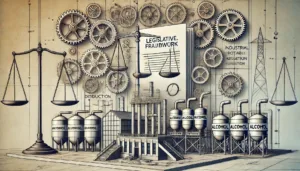Facts:
The case involves a tragic incident on November 1, 2007, when a company employee was scheduled to work a night shift. Her assigned cab driver, along with an accomplice, orchestrated her kidnapping, sexual assault, and murder. Postmortem findings confirmed the cause of death as grievous injuries. The trial court convicted the accused and sentenced them to death, which the High Court and the Supreme Court confirmed.
Contentions of the Appellant:
The State of Maharashtra argued that the delay in executing the death sentence was neither inordinate nor unexplained. They emphasized the procedural complexities involved, including legal and administrative reviews. The appellants maintained that the convicts were not kept in solitary confinement, and the procedural requirements for execution were met.
Contentions of the Respondent:
The convicts contended that the prolonged delay in processing their mercy petitions and executing the death sentence violated their constitutional rights under Article 21. They claimed solitary confinement and procedural lapses in issuing execution warrants. They sought commutation of the death sentence to life imprisonment due to inhumane treatment caused by delays.
Issues:
- Whether the delay in processing mercy petitions constitutes a violation of Article 21 of the Constitution.
- Whether the convicts were kept in solitary confinement before the execution.
- Whether the Sessions Court’s delay in issuing execution warrants was justified.
- Whether the death sentence should be commuted due to inordinate delay.
Observations/Findings by the Supreme Court:
The Court noted significant delays at three stages: the processing of mercy petitions by the Governor and President and the issuance of execution warrants. It held that the delay was avoidable and primarily due to administrative lapses. The convicts’ constitutional rights were violated due to prolonged uncertainty.
Principle of the Case:
Undue delay in the execution of the death sentence can violate Article 21 of the Indian Constitution, mandating commutation to life imprisonment. Administrative inefficiencies cannot justify such delays.
Final Order:
The Supreme Court upheld the High Court’s decision to commute the death sentence to life imprisonment, fixing a term of 35 years. It emphasized procedural reforms to prevent future delays.
Impact on Public Law and Order:
The ruling underscores the importance of prompt administrative action in death sentence cases. It strengthens the constitutional principle that even condemned prisoners are entitled to fundamental rights until the execution of their sentence. This precedent mandates systemic reforms to expedite such cases, balancing justice for both convicts and victims.
Case Citation:
Supreme Court of India, State of Maharashtra & Ors. vs. Pradeep Yashwant Kokade & Anr., Criminal Appeal Nos. 2831 and 2832 of 2023, Date of Judgment: 2024 INSC 947.








